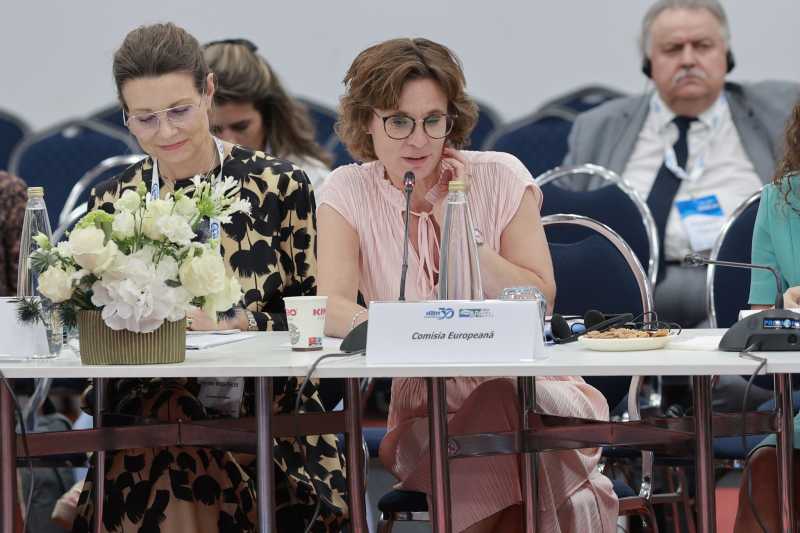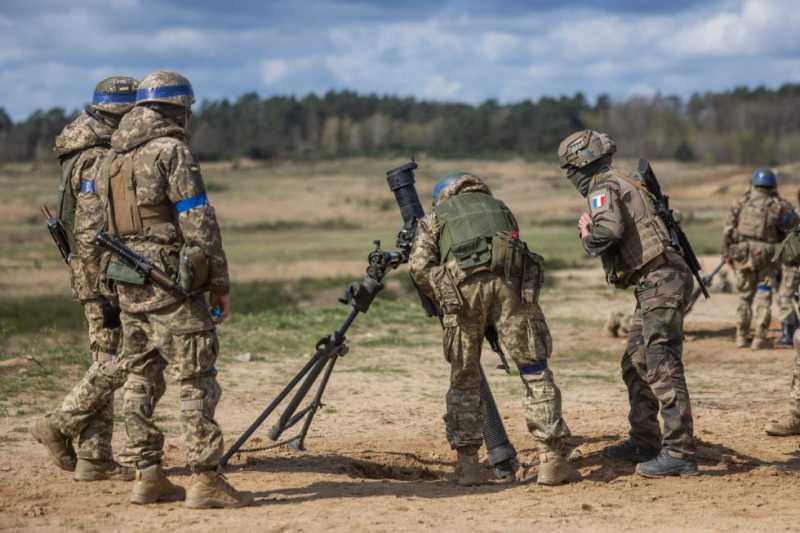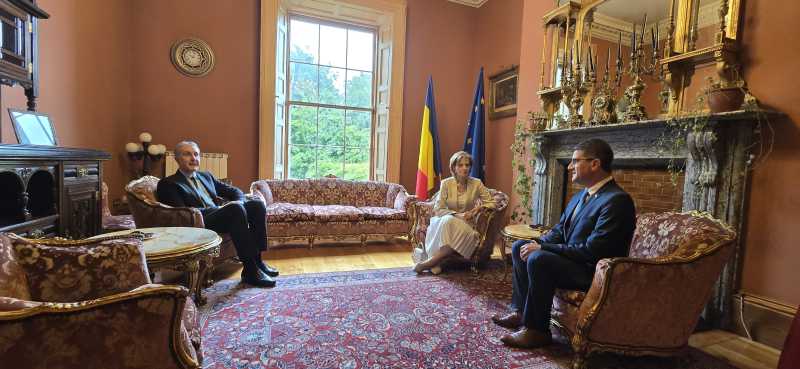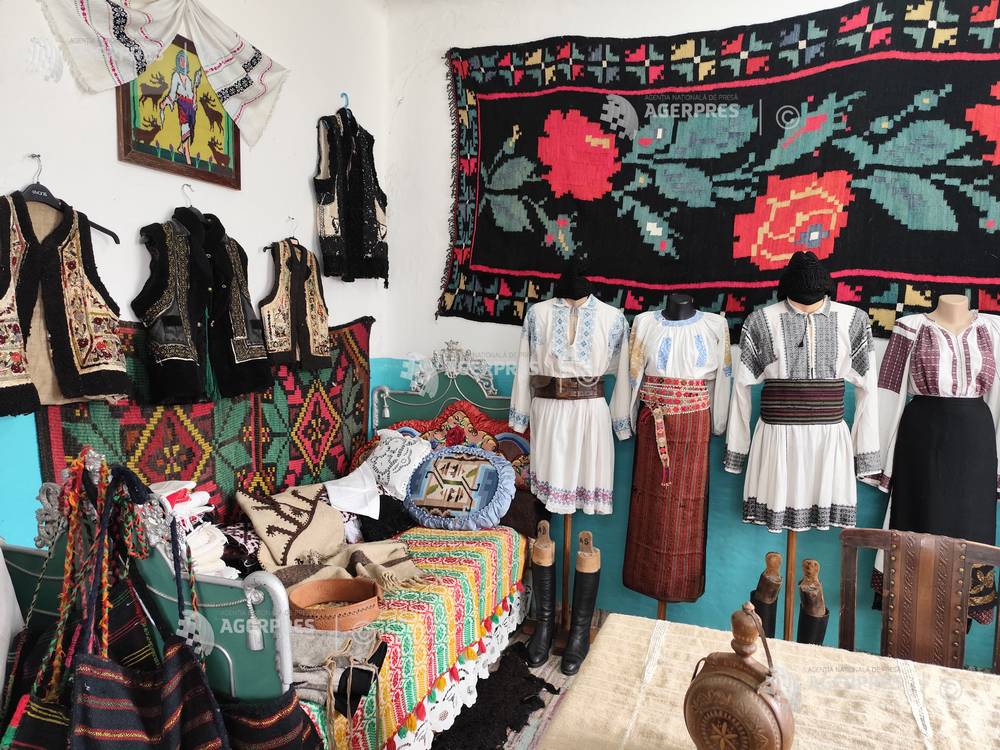Where have all the nurses gone? EU tackles healthcare labour shortage (enr)
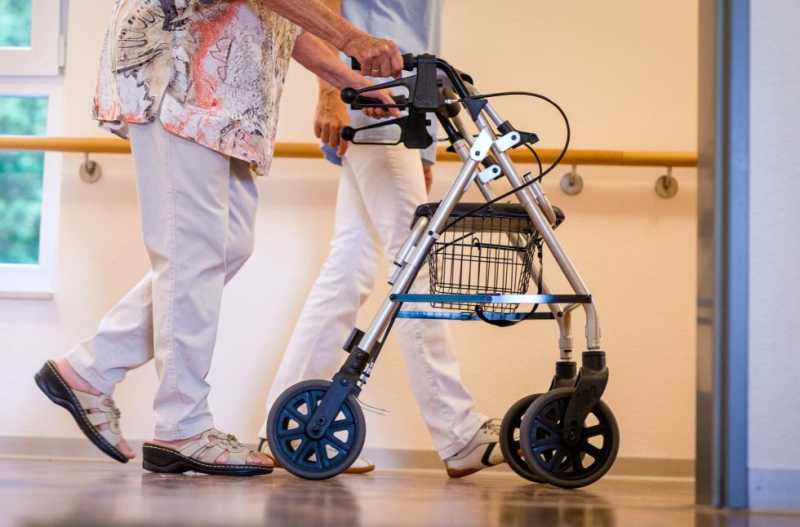
Doctors, nurses, carers, pharmacists: No matter where you look across Europe, the continued lack of health professionals is weighing on a sector that has been in crisis for years.
Europe's health care sector is creaking from old age - of its patients and its workforce. The shortage of trained personnel - part of a broader trend across many sectors of the economy - hits health care providers particularly hard. At the same time, more people need care.
In a 2023 report, Eurofound summed up the situation as such: 'Labour shortages are particularly prevalent in sectors with challenging working conditions, such as health and long-term care. Low levels of investment coupled with the impact of the [Covid-19] pandemic and a gender-segregated labour market are contributing to the shortage of health and long-term care workers in a sector where the EU's ageing population and workforce is also set to exacerbate these shortages further in the coming years.'
So far, so bad. The situation appears similar across the EU's member states as well as the countries aspiring to join the bloc. Countries wrangle with the same issues apart from the all-present problem of ever-rising healthcare costs:
Ageing population
Demographic shifts across the EU are profound, with the proportion of the population aged 65 and above having increased from 16 percent in 2000 to more than 21 percent in 2023, according to an OECD report from 2024. Projections indicate a further rise to nearly 30 percent by 2050.
Data from Italy predicts exactly this scenario. According to the Meridiano Sanita Report by think tank Teha, this puts the healthcare system at risk: Already today seniors absorb about 60 percent of national healthcare spending despite only representing 25 percent of the population.
France's statistics department of the social ministries (DREES) warned that with an aging population and an expected increase in chronic illnesses, the need for nursing care is projected to grow by about 55 percent by 2040, far outpacing the growth in the number of nurses.
Germany's new Health Minister Nina Warken called for more competences and better working conditions for healthcare workers in order to take better care of the country's aging population.
Ageing workforce
Like the general population, caregivers are getting old as well:
In France, the National Order of Nurses warned in March that despite an increase in numbers, the workforce will not meet future healthcare needs. As of March 1, there were 565,553 registered nurses, 87 percent of whom are women. The average age 'is around 40', said the Order's president, Sylvaine Maziere-Tauran. 12,000 nurses were over 60. 'We recommend anticipating needs and not waiting until we hit a wall,' Maziere-Tauran warned.
In Bulgaria, the average age of nurses was 49 in 2024, according to data from the country's association of health care professionals (AHCPBG). Some 20 percent of Bulgaria's nursing workforce is already of retirement age, compared to just 4 percent in other EU Member States, AHCPBG's chairwoman, Petya Nedkova, noted. Since 2015, the number of nurses had dropped by 30 percent to around 22,000 last year.
In Spain, 49,791 nurses are aged between 55 and 64, who are expected to retire in the next ten years, according to a study that was carried out by the Spanish Nursing Research Institute. Spanish nursing continues to lag behind Europe with a rate of 6.3 professionals per 1,000 inhabitants - translating to a shortage of close to 123,000 nurses.
The head of Italy's statistics institute ISTAT, Francesco Maria Chelli, said that according to estimates about 77 percent of the country's general practitioners were aged 55 or over. Chelli explained that 'the provision and aging of medical personnel represent critical issues for the healthcare sector, also in light of the future increase in demand for care due to population dynamics'.
Overwork
The number of doctors and nurses per patient varies widely across Europe. Statistical data is hard to harmonise, but the EU average for doctors is about 4 per 1,000 inhabitants. For nurses that figure is closer to 9.
Croatia has about 4.6 nurses per 1,000 inhabitants. The shortage means that the existing staff works extremely long shifts with minimal breaks, which leads to high levels of stress and burnout.
In April, French healthcare workers and relatives of colleagues who committed suicide have filed a legal complaint against two ministers over 'deadly working conditions' in public hospitals that they say are causing suicides, their lawyer said.
In Spain, primary caregivers highlighted their shortages in funding and staffing, which lead to lengthening waits for appointments. Each doctor in Spain does on average 6,906 consultations a year, translating to 28 a day. For nurses the number is 4,104 (16.6 a day).
Distribution of caregivers
Hospitals and doctors are often concentrated in urban areas, while other regions face low doctor/nurse-to-patient ratios.
In France the outskirts of metropolitan areas and some border regions tend to be less well covered. Doctors and medical students in April protested against a proposed bill which aims to regulate where doctors can set up practice to combat medical deserts.
In Bulgaria, one in five nurses work in the capital, Sofia.
While in Croatia the number of doctors per 1,000 inhabitants is not far from the European average, they are unevenly distributed, with shortages in rural areas and on islands.
Portugal has a ratio of 5.6 doctors, however, this figure includes all registered doctors, regardless of whether they are practising, which may distort the comparison. Rural and inland regions face greater difficulties in attracting and retaining health professionals, resulting in inequalities in access to care.
Migration of doctors and nurses
Low salaries, poor working conditions, and limited opportunities for professional development drive doctors and nurses to search for better work abroad.
Between 2019 and 2024, more than 6,000 clinicians left Portugal's National Health Service exacerbating the shortage of human resources, especially in critical areas such as obstetrics and paediatrics. Many professionals choose to migrate to the private sector or abroad in search of better working conditions and pay.
Bosnia and Herzegovina has been experiencing a continuous outflow of healthcare professionals for years. According to estimates by entity-level health institutes and international organisations, over the past decade more than 4,000 nurses and medical technicians and nearly 2,000 doctors have left the country.
Bulgaria's healthcare professionals in May demanded a 150-percent wage increase. Union leader Maya Ilieva stated that nurse salaries are lower than those in supermarkets, making the profession unattractive.
Croatia has faced a mass exodus of doctors and nurses to better-paid jobs abroad. According to data from the Croatian Medical Association from last year, in the ten years since Croatia joined the EU on July 1, 2013, in total 1,214 doctors out of just over 16,000 doctors have left Croatia. According to estimates from 2024, there was a shortage of about 4,000 nurses. Most doctors and nurses went to Germany, Austria, Ireland and Sweden. Following significant pay rises, the outflow however slowed down.
Slovenia has also seen an outflow of healthcare staff to other countries. The Chamber of Nurses' calculations for 2022 show that there is a shortage of 20 to 25 percent of nurses at hospital and primary level. There are also not enough doctors, nursing staff in care homes and pharmacists. Slovenia has so far been able to draw on staff from the former Yugoslavia, but that staff pool is emptying.
Germany has been on the receiving end of the health care migration. According to official statistics, around 20 percent of carers in hospitals, nursing homes and mobile nursing services come from abroad.
Is throwing money at the problem enough?
The EU4Health programme - initially adopted as a response to the Covid-19 pandemic - provides financial support for the health sector. In the 2021-2027 MFF, it allocates a budget of 4.4 billion Euro to strengthen health systems. While the funds were mostly aimed at reinforcing the EU's resilience to health threats, beating cancer and a pharmaceutical strategy, some states also aimed it at its healthcare workers.
EU candidate country Bosnia and Herzegovina also joined the programme in July 2024, marking the first time the country gained access to EU funds aimed at strengthening the health system's resilience and digitalisation, and to provide additional training for healthcare workers. Although these are initial steps, it is expected that the available funds will contribute to modernising equipment, improving working conditions, and introducing professional development programmes.
Slovenia for its part has been partly using funding from the Recovery and Resilience Plan to tackle the healthcare labour shortage, as the plan envisages specific funding to strengthen the competences of healthcare staff to ensure the quality of service and the digital transformation of the health system.
Many measures to address shortages in the health and long-term care sectors focus on pay and working conditions, Eurofund said in its 2023 report. While initiatives to tackle the issue of low wages in some central and eastern European countries - such as Croatia - have helped to slow the numbers considering working abroad, focusing on pay alone is often insufficient.
Bad working conditions make recruitment more difficult. 'We have to deal with a disaffection for the public healthcare service and the consequent difficulties in recruiting professionals, with the peak of the pension curve, especially for some profiles,' Italy's Health Minister Orazio Schillaci pointed out recently.
The Eurofund report recommends looking at other quality of life factors that make work more attractive, such as education infrastructure, greater autonomy over working hours, access to training and career progression and more meaningful work.
While these attempts look mostly at professional care, there is also the aspect of informal care, which will become more important as Europe's population ages. Already now, care needs are not met for many people. More elderly will need looking after in care homes, their homes, or their families' homes. This care work often falls to family members.
According to the Bruegel think tank, women stand to lose the most if no steps are taken to prepare long-term care systems for the coming surge in demand, because care - both formal and informal - is predominantly provided by women. Women are more likely to reduce working hours because they have unpaid care work responsibilities at home. Across the EU, more than three quarters of professional nurses are women.
The content of this article is based on reporting by AFP, ANSA, BTA, dpa, EFE, FENA, HINA, LUSA, STA, as part of the European Newsroom (enr) project. AGERPRES (editing by: Mariana Ionescu)
The content of the www.agerpres.ro website has the exclusive purpose of public informing.
All the information published on this website by AGERPRES is protected by relevant legal dispositions.
It is forbidden to copy, reproduce, recompile, decompile, distribute, publish, display, modify, create derived components or products or full services, as well as any exploitation of the site's content.
Details in the section Terms of Use. If you are interested in picking up AGERPRES news items, please contact the Marketing Department – [email protected].
The use of the Comments section entails your obligation to respect the AGERPRES terms and conditions in regards to the publishing of comments on the www.agerpres.ro.
Other news in category
Nicusor Dan: Romania is not immune to extremism and intolerance
Romania is not immune to extremism and intolerance, dangers that often target those who defend the truth, demand transparency and raise alarm bells, President Nicusor Dan said in a message sent on the occasion of the 23rd edition of the Civil Society Gala. In this context, the head of state emphasizes, support for civil society must remain firm and constant.
Environmental Commissioner says Praid flooding is one of too many calls to fix broken water cycle
Climate change also comes with more frequent and intense floods and no country is spared, one example to this being the flooding of the Praid salt mine (Harghita County), and this is why EC President Ursula von der Leyen has made the development and implementation of a Comprehensive Water Resilience Strategy a key political priority, Commissioner for Environment, Water Resil
NATO summit looms as Europe divided on record defence spending hike (enr)
With armed conflicts involving states at a 70-year high, NATO is preparing for its most ambitious defence overhaul yet, but not everyone is on board. The next NATO summit kicks off in The Hague on Tuesday, with a proposed new security-related spending target of 5 percent of Gross Domestic Product (GDP) by 2032 on the table. NATO chief Mark Rutte
Crown Custodian and spouse on Ireland visit, briefed on Ballymena violence aftermath for local Romanian community
AGERPRES special correspondent Florin Zafiu reports: A number of 50 families who reside in Northern Ireland have requested consular support from the Romanian Embassy in Ireland amid the violent disorder that troubled the Northern Irish town of Ballymena for several days, Romanian diplomats reported on Tuesday during a meeting with Custodian of the Crown of Romania, Her Majes
27th edition of George Enescu International Festival to open on 24 August
The 27th edition of the George Enescu International Festival opens on 24 August, inviting audiences on a sonic journey themed 'Anniversaries / Celebrations', marking 70 years since the death of composer George Enescu. According to a press release from Artexim sent to AGERPRES on Tuesday, this year's edition will bring together over 4,000 artists fr
Ethnologist at Banat Village Museum:The Sanziene sing for bounty of fields, treasures shine on this night
Romanian villages in the Banat region still preserve the beliefs that the heavens open during certain periods of the year, around major holidays such as the Sanziene celebration, and the those who pass on to the other side in those hours go straight to heaven, the forefathers' souls return home, spirits can talk to humans or treasures deeply buried shine at the surface a
Romania ranks 49th in 2025 World Competitiveness Yearbook
Romania ranks 49th in this year's World Competitiveness Yearbook, with Switzerland, Singapore and Hong Kong occupying the podium, according to a press release from CIT-IRECSON - the Technological Information Centre - sent to AGERPRES on Tuesday. According to the 2025 edition of the World Competitiveness Yearbook, Romania drops nine places in the 'Econo
ECDL Romania and AOAR launch GhidAI.ro, aimed at digital transformation of SMEs in Romania
Small and medium-sized enterprises (SMEs) in Romania are below the European average when it comes to the use of Artificial Intelligence (AI), accounting for only 2.78% of the total, compared to 13.48% at the European Union (EU) level, according to a report by the European Commission (EC), cited in an analysis by ECDL Romania, a leader in digital skills certification in the c
ROMANIAN BLOUSE DAY/Dozens of folk blouses from interwar period, in 'Dowry Box' of a priest from Trifesti
An hour's drive from Piatra-Neamt, in the village of Miron Costin in the commune of Trifesti, there is a real 'Dowry Chest'. Dozens of women's blouses 'ii' from the interwar period, carefully collected by the village priest, reveal the beauty of Romanian folk costume, right from the area. Their story is presented by pries
Code Yellow heat warnings covering three-quarters of Romania until Thursday morning
The National Meteorological Administration (ANM) issued new Code Yellow heat warnings on Tuesday, which will remain in effect until Thursday morning and will cover over three-quarters of the country. According to meteorologists, the first Code Yellow warning for hot weather will be in force from 24 June at 10:00 a.m. to 25 June at 10:00 a.m., affecting Banat,
PM Bolojan: The first day in the service of our country at Victoria Palace. Respect for Romania
Prime Minister Ilie Bolojan arrived on Tuesday morning at the Victoria Governmental Palace, on his first day in office as head of the new government. He shared his first message on social media. 'The first day in the service of our country at Victoria Palace. Respect for Romania!,' he wrote on Facebook. The Bolojan Governm
Sustainable agriculture, development of sustainable infrastructure and smart cities, among themes of 30th event of 'Together we protect Romania'
The 30th event of the 'Together We Protect Romania' series, a conference organized under the theme 'Unlock the Future: Visionary Leaders. Bold Thinking. A Legacy of Impact. The best professionals for Romania's Sustainable Development', will take place on Tuesday at the University of Agronomic Sciences and Veterinary Medicine. The event is o
Commissioner Minzatu discusses EU plans to address poverty and social exclusion, with a specific focus on housing
The European Commission is set to unveil on July 16 the next long-term EU financial plan, which will also include allocations for fighting poverty, and in 2026 it will launch the first European Anti-poverty Strategy and the first European Affordable Housing Plan, Roxana Minzatu - European Commission Executive Vice-President for Social Rights, Skills, Quality Jobs and Prepare
Members of Bolojan Government take oath of office
The members of the Government led by Ilie Bolojan took the oath of office on Monday evening, in the presence of President Nicusor Dan, during a ceremony held at Cotroceni Palace. The ceremony was attended by the interim president of the PSD, Sorin Grindeanu, the president of the USR, Dominic Fritz, the president of the UDMR, Kelemen Hunor, and the leader of th
Romania intending to host Black Sea AI Gigafactory
Romania is intending to host Black Sea AI Gigafactory, a state-of-the-art AI plant that will serve the Republic of Moldova and the entire Black Sea region, and it has submitted a letter of intent to the European Commission, according to the Ministry of Economy, Digital Transformation, Entrepreneurship and Tourism. 'The project submitted is not only about t



